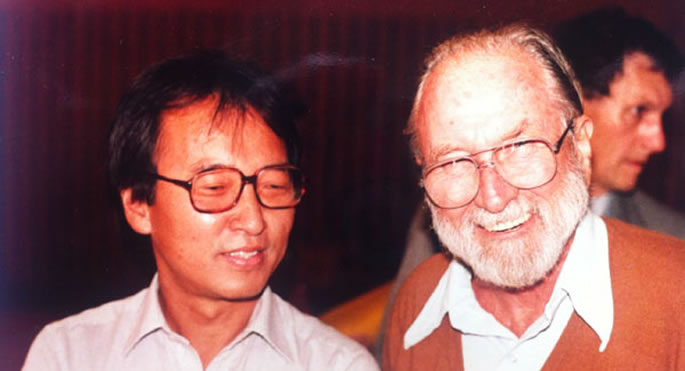A Tribute to a connector: Peter Park (1930-2014)
In the history of social movements and social change not enough is said about a category of persons we might refer to as connectors. Who are these people? Why are they important? Persons who are located outside the reins of power often lead social change. For those ideas to enter into the corridors of power where chance has to happen, people are involved.
Transformation is not a mystical process whereby consciousness or awareness comes suddenly to those in charge. Change is about relationships, about people. This has been true with our knowledge democracy movement over the years. When the discourse of participatory research (PR) emerged from places like Tanzania, Columbia, Chile, Brazil, the Philippines and India in the 1970s, the carriers of this discourse were activists working in a variety of movements and NGOs. The international network of participatory research found an institutional home with the International Council for Adult Education. The Universities of the day, both in the global South and the global North were suspicious of participatory research, defensive in the face of critiques about the objectivity of academic research and down right offended that civil society and social movements would have the hubris to propose an alternative approach to knowledge creation.
So while PR found ready acceptance in the social movements of the day and later in the international development sector, universities did not pay any attention to this stream of work. Hence the need for connectors. There were several academics who reached out to bridge the world of knowledge democracy with the academic world especially in North America. Among the earliest connectors were Dian Marino (York University), Randy Stoeker ( University of Toledo, now Wisconsin), John Hurst (Berkeley) and Peter Park (University of Massachusetts, Fielding Institute).
Peter passed away in April 2014. He was the greatest of connectors, albeit in his own silent and low-key manner.
Peter Park was an American of Korean heritage, a sociologist with a deep commitment to social justice. Peter had run into some deep frustrations with the notion of an objective social science when working with Korean immigrants who were being shut out of American life in Los Angeles in the 60s. Positivist research was, he found, culturally insensitive and wanted the researcher to remain distant and aloof from his ‘subjects’. Peter was not inclined to remain aloof in the face of injustice and was open to looking at research in a new, engaged and politically committed way. He made friends with the folks in the Participatory Research Group in Toronto, invited them to conferences and in 1993 co-wrote the first North American academic book on the subject of participatory research, Voices for Change: Participatory Research in Canada and the USA.
As a committed and rigorous scholar, Peter understood the boundaries that limit the north-south divide in academia and the world of social change practice. He readily connected practitioner-activists from the South with sensitive academics from the North. His thoughtful contributions to ‘action-oriented research’ embraced such divides organically.
When Peter left the University of Massachusetts, he began a wonderful new stage in his academic life. Fielding Institute (whose colleagues recently ‘re-connected’ us to Peter’s journey), then as now, is a place where creative and thoughtful people can study in interdisciplinary ways outside of the walls of a formal academic institution. Peter was able to work with activists, thought leaders, organisational changers who did not have to leave their work to pursue their studies. For Peter, academic scholarship has to contribute to making the world a better place.
Our knowledge democracy movement of the second decade of the 2000s owes a great deal to some of the early connectors, people with vision and a deep sense of social justice. Peter would have been happy to see the growing acceptance of these traditions of action-oriented participatory research now in universities around the world.
Peter Park was one of the first and one of the best.
Budd Hall & Rajesh Tandon
UNESCO Chair on Community-based Research and Social Responsibility in Higher Education
October 6, 2015
See more at: http://unescochair-cbrsr.org/unesco/a-tribute-to-a-connecter-peter-park-...
 Printer-friendly version
Printer-friendly version- Login to post comments
- 164 reads






